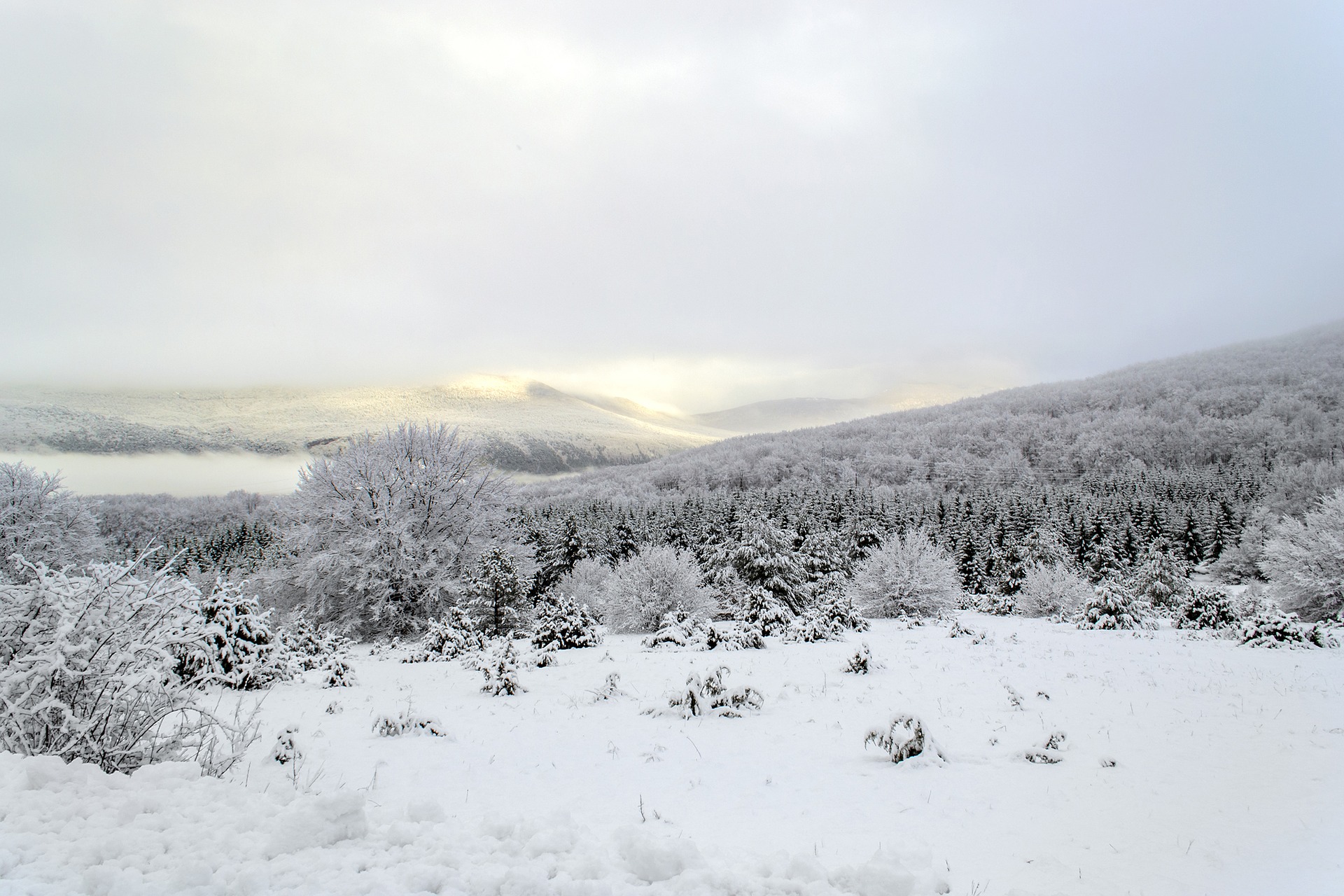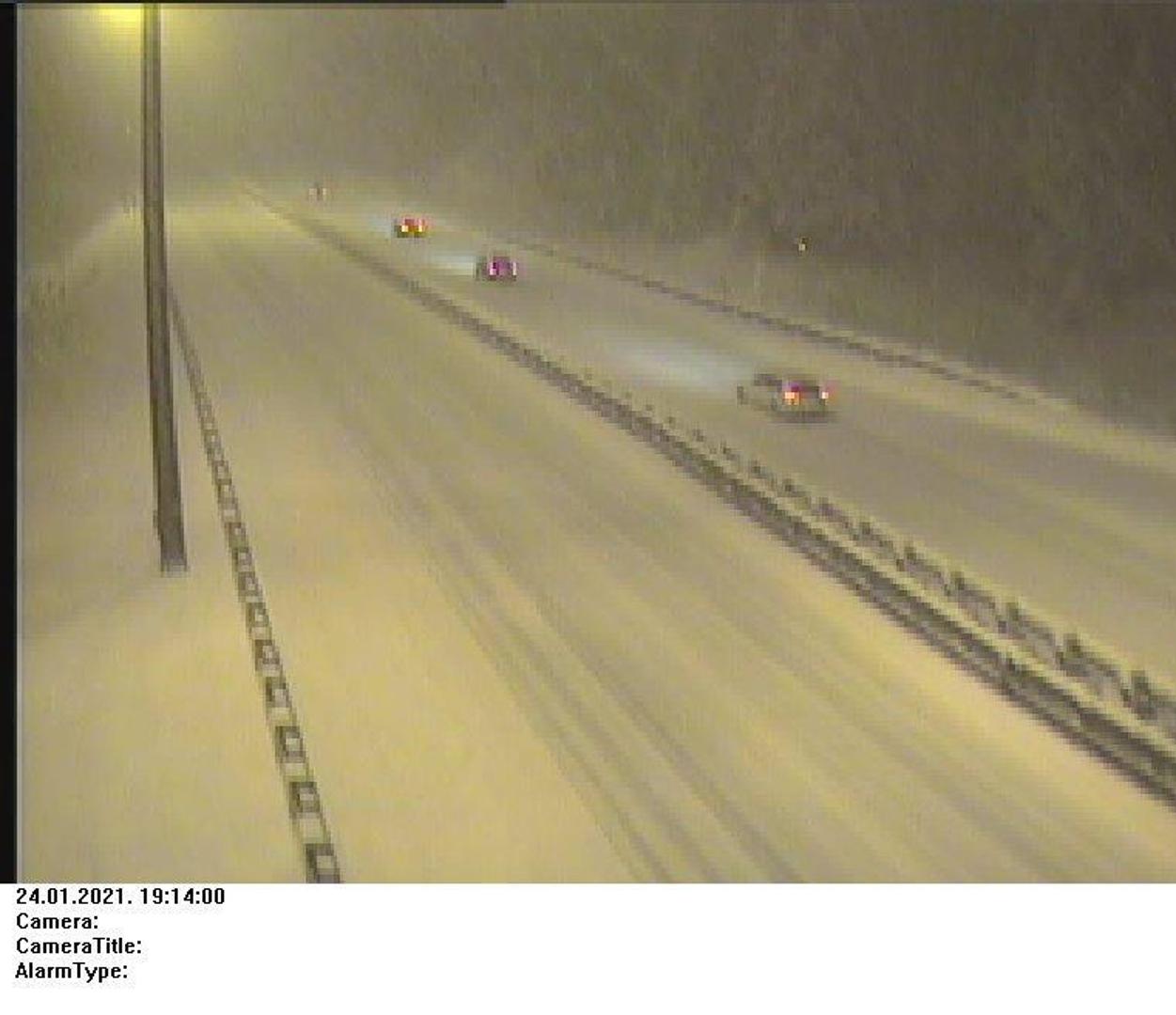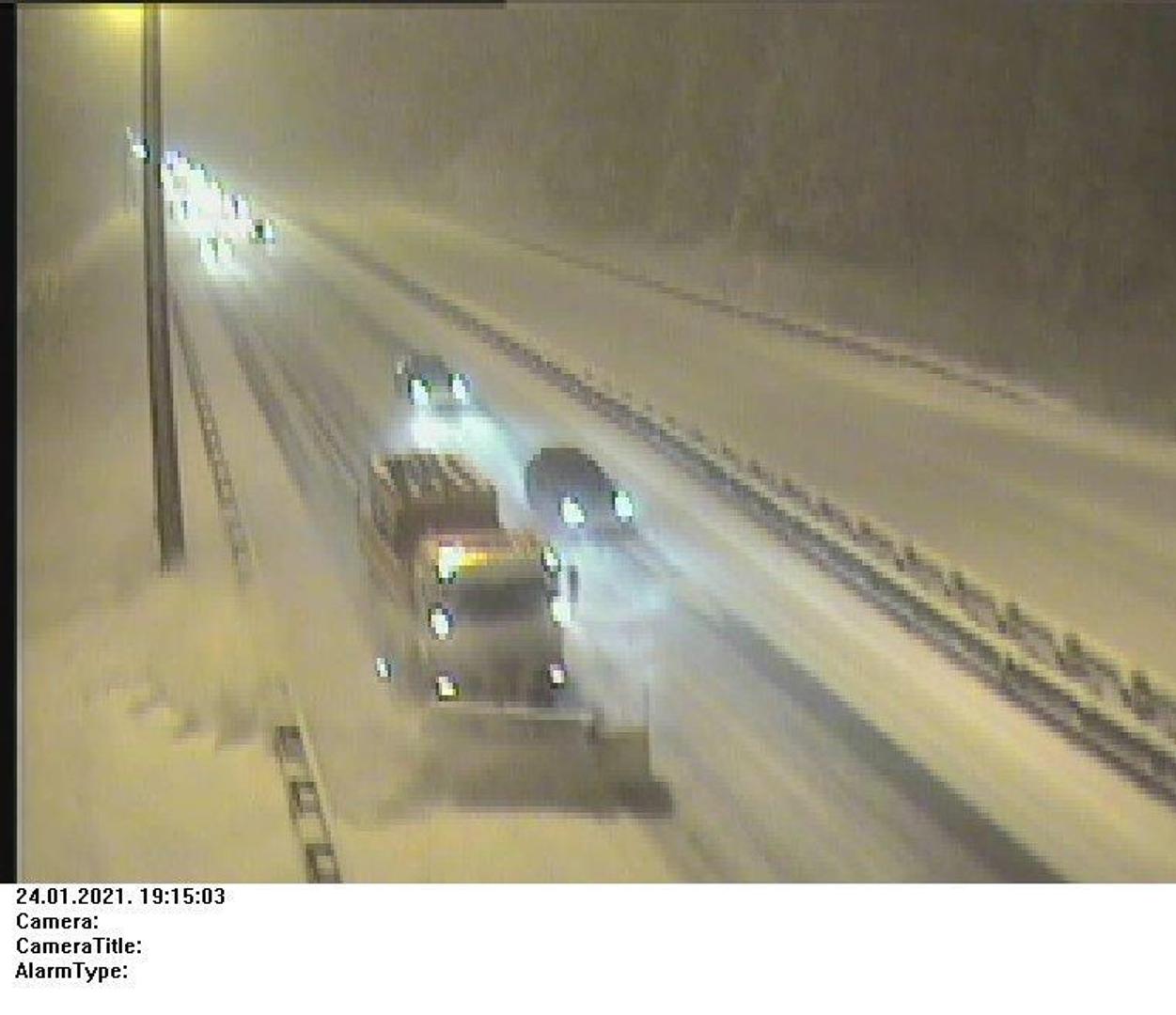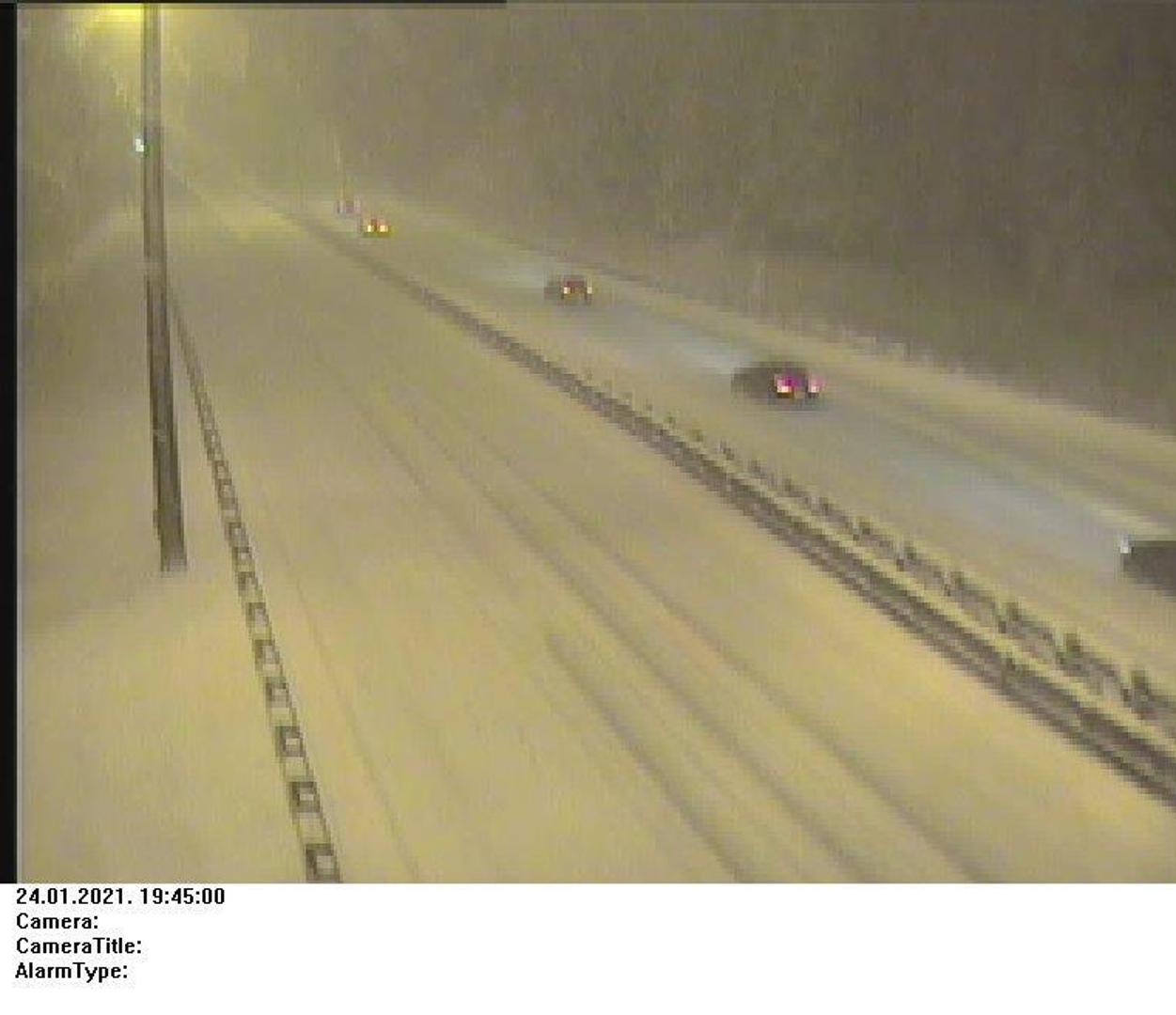New Technology to Improve Road Safety Presented at Conference
ZAGREB, 22 Feb 2022 - A conference was held in Zagreb on Tuesday to discuss the use of contemporary technology to improve road safety, including the intelligent vehicle speed control system.
Minister of the Sea, Transport and Infrastructure Oleg Butković said that traffic safety is a key imperative in project planning, particularly in road traffic, where there are still too many casualties.
Electronic road tolls, safety at black spots
"Through activities of the ministry we have put emphasis on the safety aspects of all our projects," Butković said at the conference.
Through the National Recovery and Resilience Plan the government has secured funds for a electronic road toll system so that drivers will no longer have to stop at toll stations, he said.
Butković announced a project worth HRK 69 million, which is being implemented by the Hrvatske Ceste road management company in cooperation with the Interior Ministry, to improve safety on the state roads, in particular at 32 black spots where accidents are frequent.
Also being implemented is a HRK 118 million project to develop an intelligent traffic system. Under the project, the entire IT equipment for traffic management will be upgraded, and a national access point has been established in Karlovac to providing traffic information in real time.
Police Chief Nikola Milina said that responsibility in road traffic no longer lies with road users but with the creators and managers of the traffic system.
The use of state-of-the-art technology is an important factor in road safety and one of the better examples is fixed speed meters, Milina said.
Croatia currently has 300 fixed speed meters and plans to install more.
Avenoso: Speed meter system to decrease road fatalities by 20%
The Executive Director of the European Transport Safety Council, Antonio Avenoso, presented the Intelligent Speed Assistance (ISA) system for vehicle speed control.
The system reads road signs and helps drivers control the speed of their vehicle. Drivers can turn it off, but the system will continue to warn them if they are over the speed limit.
ISA is expected to reduce road fatalities by 20 per cent, increase interest in walking and cycling, reduce noise pollution and result in ewer speeding fines.
Government Proposes Stiffer Fines for Speeding
ZAGREB, 11 Nov, 2021 - In its proposal to amend the Road Safety Act, the Croatian government proposes that speeding fines be increased from the present HRK 500 (€66) to HRK 1,000 (€133) in order to deter drivers from repeating such offences.
In the ten months to the end of October 2021, 38 per cent of fatal accidents in Croatia were caused by speeding, and 99 people were killed due to speeding, which is 38 per cent of the total of 259 persons killed in road accidents so far this year, Interior Minister Davor Božinović warned while presenting the proposal at a cabinet meeting on Thursday.
The proposal classifies push scooters, roller skates and inline skates as "auxiliary means of transport for pedestrians", while "individual means of transport" include unclassified vehicles such as electric unicycles, Segways, hoverboards, electric scooters and the like. The amended Act will regulate their participation in traffic.
The government also sent three bills aligned with EU law to Parliament for fast-track adoption. The Minister of the Sea, Transport and Infrastructure, Oleg Butković, said that their timely adoption was one of the conditions for the absorption of EU funding under the National Recovery and Resilience Plan.
The proposal to amend the Roads Act aims to ensure the interoperability of the electronic toll collection systems on EU roads and facilitate the cross-border exchange of information from vehicle registers.
The proposal to amend the Scheduled and Occasional Coastal Maritime Transport Act should facilitate the green transition with the ultimate goal of protecting the environment as one of the main pillars of the sustainable growth model.
The proposal to amend the Inland Navigation and Ports Act improves the qualification system for inland navigation crews for the purposes of labour mobility, as well as shipping development and fleet renewal.
Administrative taxes will be reduced and procedures for issuing electronic documents will be streamlined and accelerated, which will have a positive impact on the operation of small, medium and micro businesses, Butković said.
For more on lifestyle, follow TCN's dedicated page.
For more about Croatia, CLICK HERE.
HAC Wins Global Road Safety Award, Announces New Projects
ZAGREB, 31 Aug, 2021 - The Hrvatske Autoceste (HAC) motorway operator has won the International Road Federation (IRF) global "Find a Way" road safety award, HAC said on Tuesday, noting that the award was a great international recognition.
The IRF award was instituted as part of the United Nations Decade of Action for Road Safety by IRF Chairman Abdullah Al-Mogbel in recognition of the value of political leadership in driving road traffic injury reduction strategies.
The award is presented every year to public companies in recognition of their dedication to road safety, HAC explained.
IRF executive director C. Patrick Sankey said that road operators have a central role in enabling interaction for participants in road traffic in a safe and positive way through measures that reduce the risk of road accidents.
HAC Management Board Chair Boris Huzjan said that HAC was greatly honoured that IRF had recognised its work and that the award acknowledged the efficiency of Croatia's policy and strategy in traffic management on state-owned highways.
HAC notes that it manages most of the highway network in Croatia and that it plans to further improve road safety through two major projects.
One is designed to replace the existing variable-message signs with new generation equipment to improve traffic flow and information for participants in traffic. The project will start in 2022 and should be completed by the end of 2024.
The second project is designed to improve highway fencing to reduce the consequences of road accidents. This project is set to start in 2022 and should be completed by the end of 2025.
For more about Croatia, CLICK HERE.
Falling Snow Causes Treacherous Conditions on Croatian Roads
January 25, 2021 – Released images show falling snow is causing extremely difficult conditions on some Croatian roads, both motorways and state roads, with the mountainous regions of Lika and Gorski Kotar most affected
Any optimists living in Zagreb could be forgiven for thinking winter was over. Over a succession of two days last week they were basking in the relatively balmy daytime temperatures of 16 degrees. The sun shone brightly, the boots stayed indoors and lighter jackets were thrown on to visit the shops. Not everyone in Zagreb is an optimist, though. And those with an experience that is greater than their hope knew the reality of the situation; Croatia's winter can turn round at any moment to bite you in the ass. Snow covering the Lika region
Snow covering the Lika region
And that's exactly what happened this weekend, when falling snow produced treacherous driving conditions across a wide area of Croatia. On some motorways, a ban on trucks with trailers and tractors with semi-trailers is in place because of the continually falling snow. Another response to the falling snow has been to make winter vehicle equipment mandatory. A thick layer of snow covers the road near Delnice at 19.14 on Sunday 24 January 2021 © HAK
A thick layer of snow covers the road near Delnice at 19.14 on Sunday 24 January 2021 © HAK
While the Croatian capital was experiencing its warm spell, falling snow continued to descend on more mountainous regions of the country, Lika and Gorski Kotar in particular. And it is those that remain most affected by the treacherous driving conditions. Hrvatske Autoceste (Croatian Motorways) are responding to the continuing weather conditions. But, they released pictures of one motorway section near Delnice which, even after plowing, was 30 minutes later again covered by the falling snow. A snowplow arrives at 19.15 to clear the snow © HAK
A snowplow arrives at 19.15 to clear the snow © HAK
Thick falling snow and ice made it difficult to drive on the A6 Zagreb - Rijeka highway. The National Association of Drivers and Vehicle Owners (HAK) issued a series of warnings for the following routes: A1 Zagreb-Split-Ploče between the junctions of Bosiljevo II and Maslenica, A6 Rijeka-Zagreb between the junctions of Bosiljevo II and Kikovica, state road DC1 between Zagorje and Gračac and state road DC3 through Gorski Kotar between Zdihovo and Kikovica. By 19.45 the road is in the same state as before the snowplow arrived, because of continually falling snow © HAK
By 19.45 the road is in the same state as before the snowplow arrived, because of continually falling snow © HAK
HAK also reported that there is currently no passable road for trucks with trailers and tractors with semi-trailers from the direction of the continental interior towards Rijeka and Istria and Dalmatia and vice versa. The colder temperatures are expected to stick around for most of the early part of the week, although the skies may be clearer in some regions. Temperatures will rise again heading towards next weekend under an increasing cloud cover, but the chilly conditions might well bounce back towards the end of next weekend. Zagreb itself could even experience more snowfall at that time.
Large Zagorje Landslide Buries Road Blocking Traffic
January 12, 2021 – The surprise Zagorje landslide has left people wondering if the groundwater has triggered the fall of ground or if the region's earthquakes may have played a part
Flattening trees and completely covering a main thoroughfare through the village of Gornji Jesenje, a surprise Zagorje landslide that occurred last week has left locals wondering if the shift of wintertime groundwater was to blame or if seismic disturbances in Croatia may have also played their part.
The Zagorje landslide occurred at the end of last week. So far, the road remains blocked. The landslide took place over four days ago. The village of Gornji Jesenje, where the Zagorje landslide took place, is just a couple of kilometres from the main thoroughfare which runs from Zagreb, through Zapresic and Zabok, and on to Maribor in Slovenia. Travel between the two major European cities remains unaffected by the landslide (although a strike by Slovenian police may currently stall passage between the countries on the border).
Thousands of cubic meters of earth were shifted in the Zagorje landslide, as the main picture (a screenshot) shows. Trees that run alongside the road were flattened with the force of the earth fall. The Zagorje landslide started under the Gorjak quarry near Gornji Jesenje. It has buried the state road DC74 in Krapina-Zagorje County. The Gorjak quarry has been in operation for about 40 years. The national institution, Hrvatske ceste, responsible for the maintenance of such routes is aware of the situation following the Zagorje landslide. Their response is pending and being planned. Their first responsibility will be to clear the road for traffic to be able to pass along the route. Further study of the area's susceptibility to further landslides is also pending. The winter groundwater, the quarry and the three large earthquakes, plus many aftershocks experienced in the region over the last 11 months will all each need to be taken into account
Number of Deaths in Traffic Accidents in Croatia Grows Again
277 people died on Croatian roads since the beginning of this year.


